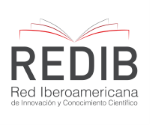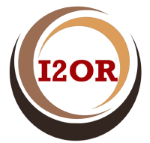Scientific arguments regarding COVID-19 vaccines in the countryside of Pernambuco
DOI:
https://doi.org/10.51359/2675-7354.2022.253516Keywords:
argumentation, scientific literacy, COVID-19, vaccinesAbstract
This study has sought to analyze the views of people from Pernambuco’s countryside, both from the academic world and outside it, regarding vac-cines and their efficiency to combat COVID-19, focusing on argumentation and scientific literacy. The research was the result of the discipline “Argu-mentation and Scientific Literacy”, of the Communication course linked to the Academic Center in the Northeastern Agreste (CAA/UFPE), located in the city of Caruaru. The data collection occurred through a survey on Google Forms, composed of open and multiple choice questions. A total of 53 survey respondents were contemplated, from various cities in the countryside of Pernambuco, with ages ranging from 16 to 76. The answers showed that 52 respondents positioned themselves in favor of vaccines, while one stated to be more or less in favor. In addition, 41 respondents said they believe in the effectiveness of vaccines, while 11 were uncertain about it. The arguments theorized about cause and effect, pragmatic, me-ans and ends, authority, symbolic and examplary types, as advocated by Perelman and Olbrechts-Tyteca (2005), and, with the data analysis, it has been noted that the indicators of scientific literacy, proposed by Sasseron and Carvalho (2011), were present in the arguments of both people from academia and outside it, showing varying degrees of scientific literacy. The respondents stated that television newscasts, social media (Facebook, Instagram, Twitter, Youtube) and internet research were the main sources of information that subsidized the arguments presented.
References
BARRETO, C. Ministério da Saúde confirma primeira morte por Coronavírus no Brasil. Pebmed, São Paulo, 17 mar. 2020. Disponível em: https://pebmed.com.br/ministerio-da-saude-confirma-primeira-morte-por-coronavirus-no-brasil/. Acesso em: 7 abr. 2022.
CANO, R. L. Música y retórica en el barroco. Cidade do México: Universidad Nacional Autónoma de México, 2000.
COSTA, A. R. F.; SOUZA, C. M. de; MAZOCCO, F. J. Modelos de comunicação pública da ciência: agenda para um debate teórico-prático. Conexão: Comunicação e Cultura (UCS), Caxias do Sul, v. 9, n. 18, p. 149-158, jul./dez. 2010.
LIMA, E.; ALMEIDA, A.; KFOURI, R. Vacinas para COVID-19 - o estado da arte. Revista Brasileira de Saúde Materno Infantil, Recife, v. 21, supl. 1, p. 521-527, fev. 2021. DOI: https://doi.org/10.1590/1806-9304202100S100002.
LUCKESI, C. et al. Fazer universidade: uma proposta metodológica. São Paulo: Cortez, 1998.
MASSMANN, D. Retórica e argumentação: percursos de sentido na biculturalidade. 1. ed. Campinas: Pontes Editores, 2017. 294 p.
PAINEL Coronavírus. Coronavírus Brasil, Brasília, 6 abr. 2022. Disponível em: https://covid.saude.gov.br/. Acesso em: 7 abr. 2022.
PALACIOS et al. Efficacy and Safety of a COVID-19 Inactivated Vaccine in Healthcare Professionals in Brazil: The PROFISCOV Study. SSRN, abr. 2021. Disponível em: https://papers.ssrn.com/sol3/papers.cfm?abstract_id=3822780. Acesso em: 13 abr. 2022.
PERELMAN, C.; OLBRECHTS-TYTECA, L. Tratado da argumentação: a nova retórica. Tradução: Maria Ermantina de A. P. Galvão. São Paulo: Martins Fontes, 2005.
PLADSON, K. De onde vêm e para onde vão as vacinas contra a Covid-19? Deutsche Welle - Made for minds, Bonn, 6 jan. 2021. Disponível em: https://www.dw.com/pt-br/de-onde-v%C3%AAm-e-para-onde-v%C3%A3o-as-vacinas-contra-a-covid-19/a-56137276. Acesso em: 7 abr. 2022.
SASSERON, L. H.; CARVALHO, A. M. P. Construindo argumentação na sala de aula: a presença do ciclo argumentativo, os indicadores de alfabetização científica e o padrão de Toulmin. Ciência & Educação, Bauru, v. 17, n. 1, p. 97-114, 2011. DOI: https://doi.org/10.1590/S1516-73132011000100007.
SHEN, B. S. P. Science literacy. Sigma XI – Scientific Research Society, Ithaca, v. 63, n. 3, p. 265-268, 1975.
SOARES, M. Letramento: um tema em três gêneros. 4. ed. Belo Horizonte: Autêntica, 2010.
VALERIO, M.; BAZZO, W. A. O papel da divulgação científica em nossa sociedade de risco: em prol de uma nova ordem de relações entre ciência, tecnologia e sociedade. Revista de Ensino de Engenharia, Brasília, v. 25, n. 1, p. 31-39, 2006. Disponível em: http://revista.educacao.ws/revista/index.php/abenge/article/view/34/16. Acesso em: 7 abr. 2022.
VOYSEY et al. Single-dose administration and the influence of the timing of the booster dose on immunogenicity and efficacy of ChAdOx1 nCoV-19 (AZD1222) vaccine: a pooled analysis of four randomised trials. The Lancet, Londres, v. 397, n. 10277, p. 881-891, mar. 2021. DOI: https://doi.org/10.1016/S0140-6736(21)00432-3. Disponível em: https://www.thelancet.com/journals/lancet/article/PIIS0140-6736(21)00432-3/fulltext. Acesso em: 13 abr. 2022.













